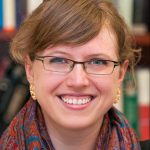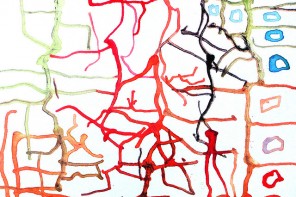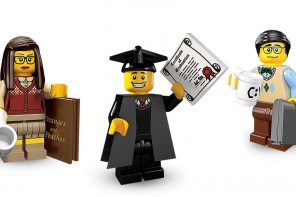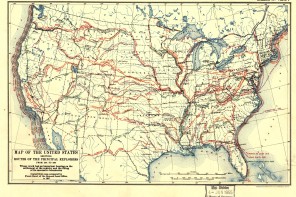By Molly Appel
It’s amazing how quickly a group of 25 strangers can become a trusted community. As Connected Academics Career Development Boot Camp Fellows, we had all come from different institutions, and we represented a wide range of literary and linguistic fields. But we all came ready to ask questions about shaping our futures. Thanks to this group of people, the 2018 MLA Annual Convention was the first time I found myself having sustained conversations about some of my deepest exploring-jobs-beyond-academia fears:
If I’m looking at other kinds of jobs, does that mean I’m giving up?
Does it mean I’m abandoning what’s important to me, and that everything I did in grad school was a waste?
Even if I’m just exploring other options, does that mean I’m not still committed to academia? Or worse, that I was never actually committed “enough” in the first place?
These fears can be chalked up to how the academy tends to talk about careers outside its walls. Despite its intention, the phrase “alt-ac” has a pejorative, hierarchical undertone. It doubles down on making the academy an isolated and segregated space, and paints over the connections between the work we’re trained to do and the diversity of ways that humanities work exists in the world.
The Connected Academics Boot Camp gave me a chance to talk about these issues openly among other grad students and PhDs (including folks from the New York Public Library), humanities professionals, and university deans and graduate directors who have taken meaningful steps to broaden career conversations. Instead of derailing me from academia, these conversations made me realize that “alt ac” is not very “alt” at all. The intellectual work we pursue and the skills we’ve been cultivating for years are alive and well beyond the academy; they may just be wearing a different outfit.
Take, for example, the process of simply discovering what other job possibilities there might be out there. One of the first fears many of the boot camp fellows expressed was how overwhelming the task seemed. Departments tend to respond to this feeling by asserting that searching for these possibilities, let alone preparing graduate students for them, is not within their purview or their wheelhouse.
Our boot camp workshop on the search process used Derek Attig’s piece on examining job ads to talk about how searching for non-academy jobs utilizes the literary research skills we’ve been developing in graduate school: begin with a close reading of a job ad for key terms; identify how a position is using those key terms to present a situation or pose a problem; use those key terms to look across ads within the field, and begin to identify patterns; discover the larger themes and questions driving the field. Attig explains that, “just as you would with a database of journal articles, try different combinations of keywords and continue to refine your search terms.”
When we practiced this process with a sample job description for a consulting firm, I admit that I was surprised to recognize my grad school training in the ad. The firm was seeking someone with the ability to “help people absorb new information,” “present to groups of different sizes,” and “come up with new solutions to old challenges.” You mean like serving on university committees and organizations, teaching classes and giving talks, and pursuing new lines of research in my field?
It’s not so hard to map my experiences onto this new context. The exercise taught me that the skills and ideas I’ve been cultivating in graduate school don’t need to change; rather, what might need to change is my lexicon for connecting this work to a community pursuing it in a different way.
Just as when we shift the scope or audience of our research, exploring broader humanities careers can improve the quality, relevance, and applicability of the academic work that we do. Many of us in the boot camp were balancing our own panels and academic job interviews with workshops on reading job ads, developing informational interview strategies, and translating our doctoral experience into résumé skills. But the boot camp sessions did not detract from the convention’s more traditional academic objectives. On the contrary: one of the boot camp fellows commented that the sessions had made her feel more confident and at ease in her academic job interviews. She was able to speak about her research with more clarity for non-specialists, and the knowledge that the interviews represented one of many possible futures helped her relax.
Discovering how our skills and intellectual commitments exist in spaces beyond academia helped me think about what, precisely, I was committed to, and how traditional academia might be only one of many spaces where that work has a home. When we engage with these other spaces, we can actually strengthen graduate students’ commitment to their doctoral work while enriching the humanities as a whole.
 Molly Appel is a doctoral candidate in comparative literature with a minor in Latin American Studies at Pennsylvania State University. Her research focuses on how literature has worked as a space of teaching and learning for human rights and social justice in the Americas. Her work is informed by her years as a Teach for America corps member and ESL instructor in New York City and Philadelphia. During graduate school, Molly has collaborated with local organizations to design and teach a literature and creative writing course to female inmates at the county jail and organized a global languages “storytime” series at the local library. Molly also makes as much time as possible for singing, video games, and her cat.
Molly Appel is a doctoral candidate in comparative literature with a minor in Latin American Studies at Pennsylvania State University. Her research focuses on how literature has worked as a space of teaching and learning for human rights and social justice in the Americas. Her work is informed by her years as a Teach for America corps member and ESL instructor in New York City and Philadelphia. During graduate school, Molly has collaborated with local organizations to design and teach a literature and creative writing course to female inmates at the county jail and organized a global languages “storytime” series at the local library. Molly also makes as much time as possible for singing, video games, and her cat.






